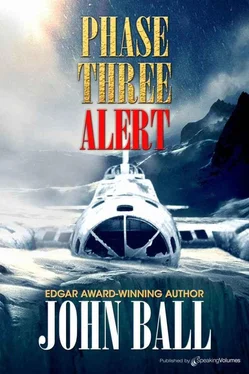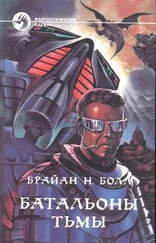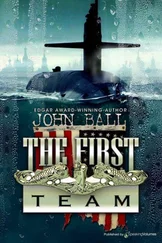Elliott all but wished himself dead. “I don’t think so,” he almost lied, “at least not for some time.” He turned his full attention back to his food tray. When the man he had been talking to had nothing more to say, and appeared to be thinking deeply, Elliott held his lips hard together, shut his eyes, and prayed fervently. Every bit of joy had gone out of his life and he was almost afraid to face his parents. He would not dare tell them one thing about the B-17.
TO COMMANDER THULE AIR BASE PRIORITY
INFORMATION RECEIVED THIS HEADQUARTERS INDICATES PROJECT WITHIN YOUR COMMAND REBUILDING DERELICT B-17 BOMBER RETRIEVED FROM ICE CAP. AS RECREATIONAL ACTIVITY, PROJECT IS APPROVED PROVIDING COMPLETED AIRCRAFT, IF FINISHED, IS USED FOR DISPLAY PURPOSES ONLY. SINCE AIRFRAME EXPOSED TO EXTREME WEATHER CONDITIONS FOR MORE THAN THIRTY YEARS, IT IS POSTED UNSAFE AND MAY NOT BE FLOWN UNDER ANY CIRCUMSTANCES REPEAT UNDER ANY CIRCUMSTANCES. ADVISE ALL CONCERNED PERSONNEL THIS DIRECTIVE IMMEDIATELY. END.
RECORDS AND REFUSAL BRANCH DIRECTOR OF AEROSPACE SAFETY NORTON AIR FORCE BASE, CALIFORNIA
OFFICIAL
In stunned, silent shock, Thule Air Base carried on with its assigned mission. The door to Hangar 8 remained closed; for several days no one entered it unless he was required to do so.
The reenlistment office reported that no one had been in, not even the career personnel who had chosen the Air Force as their life’s work.
When the base theater had a flying film booked, almost no one showed up to see the picture.
The consumption of alcoholic beverages at the clubs increased to the point where the medical officers recommended to the commander that some counteraction should be taken. There were three traffic accidents during a period when such incidents were all but unknown.
The personnel officer received so many applications for transfer, and so many sets of early retirement papers, he went in some haste to see the base commander.
“Colonel,” he reported, “as long as I’ve been in the Air Force, I’ve never seen morale go to pieces like this. Look here, sir.” He handed over a formal document.
Colonel Kleckner glanced at it and registered genuine surprise. “I can’t believe it,” he said.
“Well, there it is: Sergeant Perry S. Feinberg putting in to leave the service.”
It was a stunning shock. “I’ve been under the impression that the Air Force was his whole life,” the colonel said quietly.
“I agree with you, sir, I’m sure that it was. But if this thing has gotten so bad that even Sergeant Feinberg can’t stand up under it, then Thule Air Base is falling apart. No reflection on you, sir. We all know that it wasn’t your fault in any way.”
“I never would have believed it of Feinberg,” the colonel said, half to himself.
“It’s a clincher, sir, I admit. Is there anything we can do about it?”
The colonel sat very still and thought hard for several more seconds, then he issued an order. “Send Sergeant Feinberg to see me,” he directed.
When the sergeant reported, he snapped to attention before the colonel’s desk, saluted, and said crisply, “Sergeant Feinberg reporting to the colonel as ordered, sir.”
The colonel returned the salute. “At ease, Sergeant, sit down.”
“Yes, sir.” Sergeant Feinberg sat with strict protocol and remained straight in his chair. Colonel Kleckner ordered two coffees to be brought in, and then closed the door to his office.
“Sergeant,” the colonel continued when he was behind his desk once more, “this is a strictly confidential meeting; you will not repeat one word of it, in any form, outside this office.”
“Understood, sir.”
“At any time, or under any circumstances.”
“No, sir — under no circumstances whatsoever.”
The colonel remained silent until a tap on the door announced the arrival of the coffee. After it had been delivered, and the door was again shut, the colonel continued. “I am aware that the morale at Thule is in bad condition.”
“It’s gone straight to hell in a bucket, sir. Beyond the point of retrievability I would say, sir.”
“And it has hit you personally.”
“I’m terminating my career, sir.”
“Drop the formality, Perry — this is on a man-to-man basis.”
“In that case, sir, I’m going to get my ass out of here as soon as the Lord will let me.”
The colonel drank some of his coffee. “I don’t blame you one damn bit; I wish I could do the same. But you know that I can’t. However, there are some things that I can do; a base commander does enjoy certain privileges.”
“Such as, sir?”
“Up to a point, I can make waves. I have a few friends who sit higher on the totem pole than I do.”
“Colonel, do I understand correctly that you’re prepared to go to bat for us?”
“The United States Air Force,” Colonel Keckner said distinctly, “is made up of fighting men; that’s what we’re trained to do.”
“Sir, I’m listening intently.”
“Then hear this: I have been following closely every step of the work you have been doing on that B-17, ever since you came back with the first engine. A prop I could understand, but when you brought in an engine, with all of the work that that must have involved out on the ice cap under severe conditions, I understood what was up. Frankly, I didn’t think you could do it or even come close — I’ll admit privately that you took me on that one.”
He paused, but Feinberg said nothing.
“Perry, I’ve personally inspected the work as it’s gone forward and I know the records of the men who have been handling the technical requirements. The reconstruction job has been uncompromising and that airplane, in my opinion, is going to be entirely airworthy and safe.”
“Thank you, sir.”
“Now all I have to do is to convince certain other people of that fact. So here’s what I want you to do: you may leak the fact, very cautiously, that all may not be lost as yet. Then I want you to withdraw your retirement papers. I’m not ordering you to do that-I can’t — but I’m requesting it. I need a con artist now of unqualified capability and I don’t have to look very far to find him.”
“And then, sir?”
“I want you to do your best to get the troops to complete the job they started. There’s one more engine to be installed and run in, new avionics to be installed and tested, and some instrument work to be gone over. How about the wiring and other connections behind the instrument panel?”
“Every bit of it has been overhauled, Colonel, and replaced if the slightest doubt existed.”
“Did you complete the fuel-cell tests?”
“Yes, sir, they checked out one hundred percent. It was a new airplane, you know, when it was ditched on the ice cap. She had only a few hours on her.”
“I want the job finished — and I’m not going to look too critically at the work records for the next two or three weeks, in case someone happens to be in Hangar Eight instead of somewhere else.”
“That won’t be necessary, sir.”
“Can you con them into doing it?”
“With your assurance, sir, that I’m not selling them down the river, I can.”
“Then do it. You are at liberty to make it known, discreetly, that I am taking a personal interest and plan to do what I can to have the curse lifted. I have a leave coming up; I may take part of it paying a visit to Norton.”
Eleven days later, at 2035 hours, Lieutenant Scott Ferguson stood alone in Hangar 8. The overhead lights were reflected brilliantly by the surfaces of the apparently brand-new B-17 that stood in proud glory on the concrete flooring. She was no longer consigned to the depressed area, she occupied the best spot the hangar had to offer. That afternoon Ferguson had had the airplane out on the ramp and, with the help of Corbin, Holcomb, Jenkins, and Stovers, he had checked her out completely. All of the engines had been run, all of the instruments had been tested, all of the avionics had been verified as far as had been possible on the ground. He had taxied her up and down the field several times and twice he had had her on the runway, trying her out just under flying speed. She hadn’t had the power and the sophistication of the C-130 Hercules, of course, but she had proven one thing to his satisfaction: she was an airplane worthy of any sky that the world had to offer.
Читать дальше












